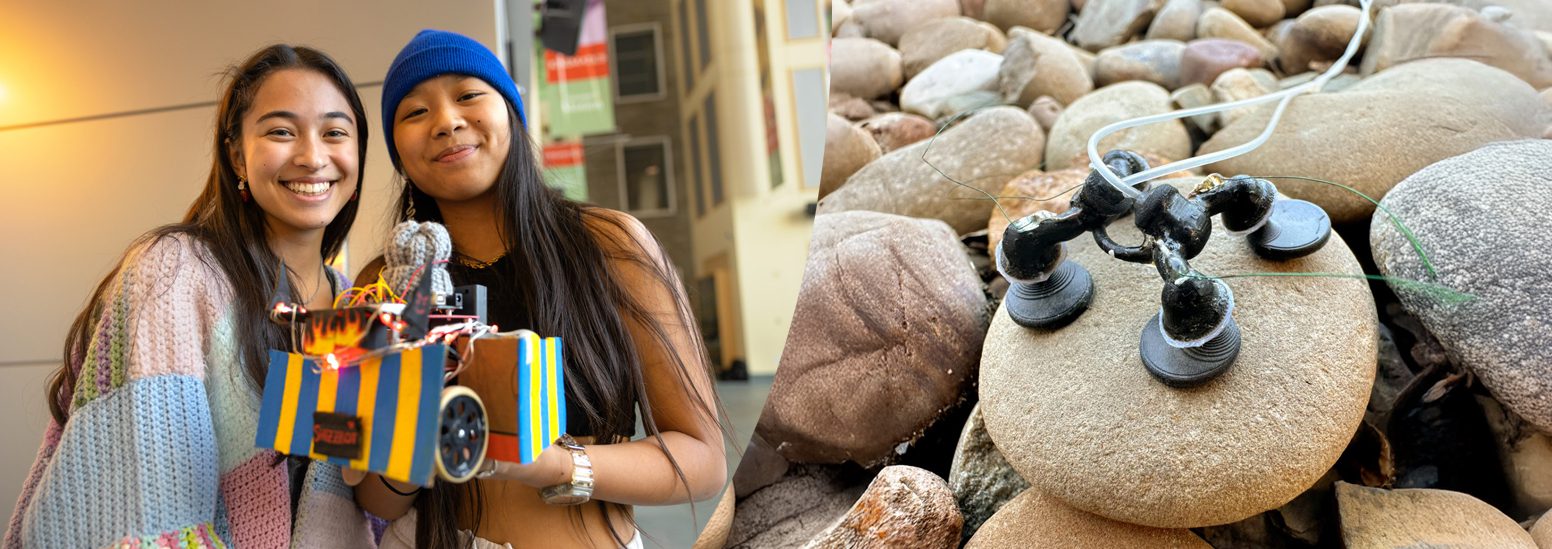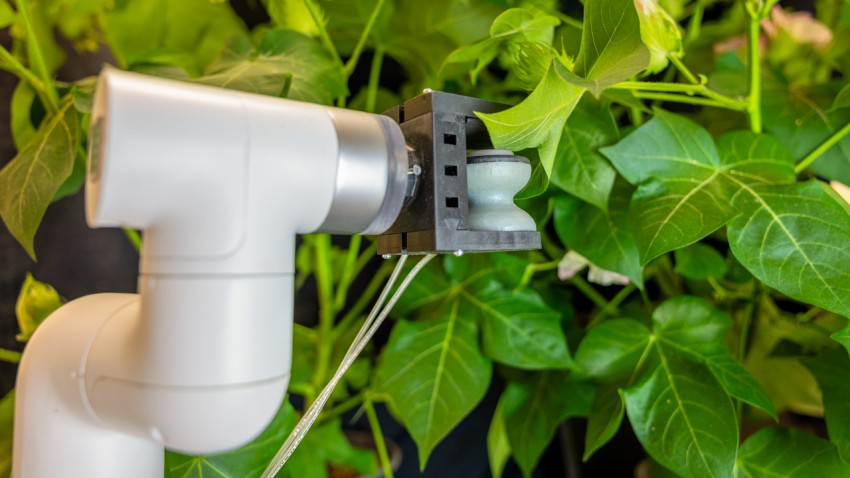The science of autonomy, enabled by robotics systems, is shaping how humans drive cars, fly planes, pilot spacecraft, design and manufacture products, and much more. These changes are poised to transform nearly every industry, from health care to hospitality. We have long been at the forefront of these areas, with numerous robotics labs working to address issues of perception, control, learning, planning and human-robot interaction.
-
150
Students compete annually in the Mechatronics course robotics competition
-
100
The width in microns (smaller than an ant’s head) of an autonomous solar-powered microrobot engineered at Cornell.
-
3,100,000
Views on Cornell roboticist Guy Hoffman’s TED Talk titled “Robots With Soul.”
-
12
Rovers engineered by the Cornell Mars Rover student project team since 2010.
Featured News
-
![The soft-robotic leaf gripper injects leaves with sensors that help it detect and communicate with its environment.]()
Soft robotic gripper injects leaves with precision
Cornell researchers have developed a soft robotic device that gently grips and injects living plant leaves with sensors that help it detect and communicate with its environment. The robot can also inject genetic material into the leaves.
-
Micromachines autonomously coordinate using electronic pulses
Microscopic machines engineered by Cornell researchers can autonomously synchronize their movements, opening new possibilities for the use of microrobots in drug delivery, chemical mixing and environmental remediation, among other applications.
-
Biohybrid robots controlled by electrical impulses — in mushrooms
Cornell researchers discovered a new way of controlling biohybrid robots that can react to their environment better than their purely synthetic counterparts: harnessing fungal mycelia’s innate electrical signals.
Select Centers and Facilities
Select Programs
- Minor
- B.S.
- M.Eng.On Campus
- M.Eng.Distance Learning
- M.S.
- Ph.D.
-
Mechanical Engineering
Involves the design and analysis of machines, engines, and systems. Perfect for those fascinated by motion, energy, and innovative mechanical solutions.
-
Aerospace Engineering
Involves designing and testing aircraft and spacecraft. It’s ideal for those excited by flight, space exploration, and advancing technologies in propulsion and aerodynamics.
-
Electrical and Computer Engineering
Focuses on developing electrical systems, from circuits to computers. Great for those interested in hardware, software, and advancing technology.
-
Computer Science
Studies computing systems, software, and algorithms. Great for those excited by innovation in technology, problem-solving, and advancing digital solutions.
-
Systems Engineering
Focuses on designing and managing complex systems. Ideal for those interested in coordinating processes to create efficient, scalable solutions for global challenges.

